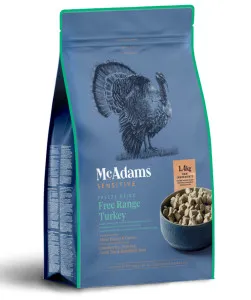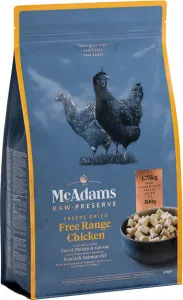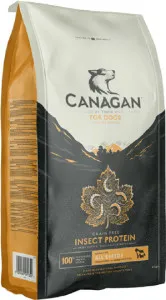What to Feed a Dog for Urinary Health: 2025 Recommendations
As pet owners, we want the best for our furry companions—especially when it comes to their health. One of the most common concerns for dogs is urinary health , which can be influenced by diet, hydration, and lifestyle. If your dog has had urinary tract infections (UTIs), bladder stones, or frequent discomfort, knowing what to feed them is crucial. Here’s a comprehensive guide to the best foods and practices for maintaining your dog’s urinary health in 2025.
Why Urinary Health Matters for Dogs
A dog’s urinary system plays a vital role in filtering waste and maintaining hydration. Poor diet, dehydration, or imbalanced nutrients can lead to:
- Urinary tract infections (UTIs) – Bacterial infections causing pain and frequent urination.
- Bladder stones – Mineral buildup that can block the urinary tract.
- Kidney disease – Long-term damage due to poor filtration.
- Wet dog food – Contains up to 80% water, promoting better hydration.
- Homemade broths – Low-sodium bone or vegetable broth encourages drinking.
- Raw or fresh diets – Naturally higher in moisture than kibble.
- Lean meats – Chicken, turkey, and fish provide high-quality protein.
- Plant-based proteins – Lentils and peas (in moderation) can reduce kidney stress.
- Prescription diets – Vet-recommended formulas for dogs with chronic issues.
- Pumpkin – Supports digestion and urinary health.
- Green beans – Low in oxalates and great for weight management.
- Apples (seedless) – A hydrating, low-oxalate treat.
- Unsweetened cranberry juice – A small amount mixed into food.
- Cranberry powder or capsules – Easy to dose and effective.
- Fermented foods – Plain kefir or yogurt (no xylitol).
- Probiotic supplements – Specifically formulated for dogs.
- High-sodium treats – Excess salt leads to dehydration.
- Artificial preservatives – Can irritate the bladder.
- Grain-heavy kibble – Low moisture and high carbs may contribute to UTIs.
- Multiple water bowls – Place them in different rooms.
- Pet water fountains – Many dogs prefer running water.
- Ice cubes as treats – A fun way to increase fluid intake.
- Straining to urinate – Could indicate a blockage.
- Blood in urine – A sign of infection or stones.
- Excessive thirst or lethargy – Possible kidney involvement.
Thankfully, the right diet can prevent these issues and keep your dog happy and healthy.
Best Foods for Dog Urinary Health in 2025
Nutritional science is always evolving, and 2025 brings new insights into canine urinary health. Here are the top dietary recommendations:
1. High-Moisture Foods
Hydration is key to flushing out toxins and preventing crystal formation. Consider:
2. Balanced Protein Sources
Too much protein—especially low-quality sources—can strain the kidneys. Opt for:
3. Low-Oxalate Ingredients
Oxalates contribute to bladder stones. Avoid high-oxalate foods like spinach and sweet potatoes. Instead, choose:
Recommended Products

McAdams Freeze Dried Free Range Turkey is an excellent choice for what to feed a dog for urinary health: 2025 recommendations. This dog food contains Boneless Free Range Turkey 86.5% and other high-quality ingredients that promote overall health.

McAdams Freeze Dried Free Range Chicken is an excellent choice for what to feed a dog for urinary health: 2025 recommendations. This dog food contains Boneless Free Range Chicken 86% and other high-quality ingredients that promote overall health.

Canagan Insect is an excellent choice for what to feed a dog for urinary health: 2025 recommendations. This dog food contains Freshly Prepared Insects (27%)* and other high-quality ingredients that promote overall health.
4. Cranberry Supplements
Cranberries contain compounds that prevent bacteria from sticking to the bladder wall. Options include:
5. Probiotics for Gut and Bladder Health
A healthy gut supports a healthy urinary tract. Look for:
Foods to Avoid for Urinary Health
Some ingredients can worsen urinary problems. Steer clear of:
Hydration Tips Beyond Food
Even the best diet won’t help if your dog isn’t drinking enough. Try these tricks:
When to See a Vet
Diet can prevent many issues, but some conditions need medical attention. Consult your vet if your dog shows:
Final Thoughts: A Holistic Approach
Your dog’s urinary health depends on a combination of diet, hydration, and regular vet checkups. By choosing high-moisture, balanced foods and avoiding harmful ingredients, you can reduce the risk of urinary problems.
For a deeper dive into canine nutrition, check out our Pet Food Analyzer to compare brands and find the best options for your pup. Your dog’s health is worth it!
